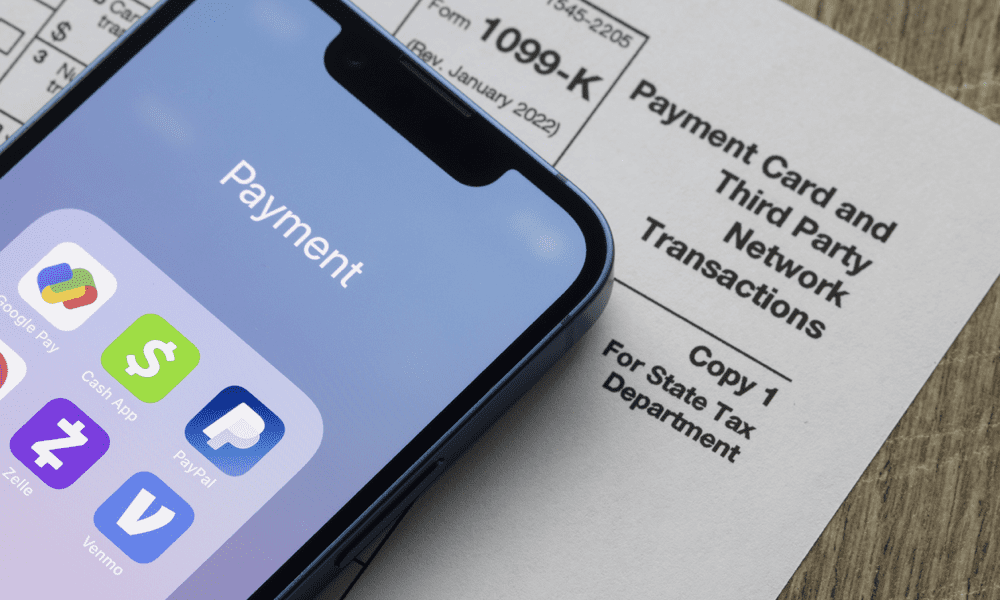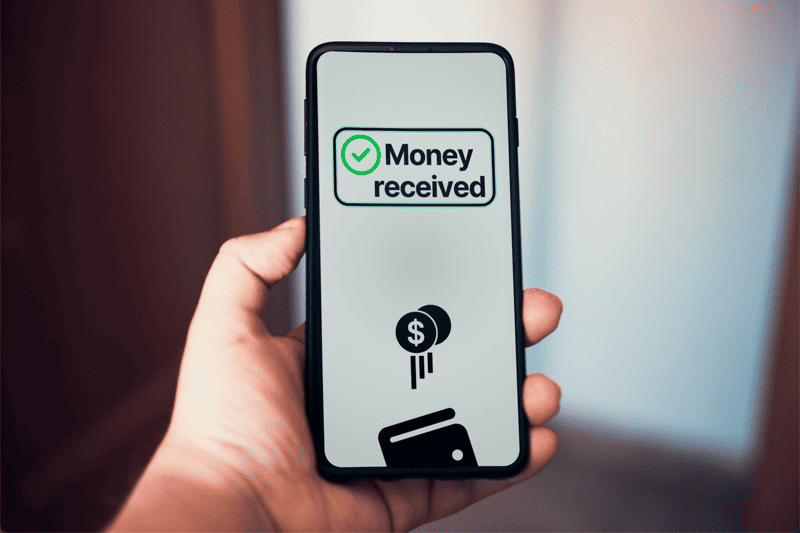Top 5 Ways to Avoid Payment App Scams and Keep Your Cash Safe

Although payment scams are common, they can be avoided. Here are the top ways to avoid payment app scams online.
The internet has made many aspects of our lives more convenient, from messaging friends to finding your way around. If you want to send someone money, for example, you no longer need to go through your bank or use a money transfer service. Instead, you can send the money directly to them using a peer-to-peer payment app.
However, with more convenience comes greater risk. Peer-to-peer payment apps such as PayPal and Cash App are popular targets for scammers, as it’s possible to use clever tricks to convince people to send money directly to the scammers’ accounts.
Thankfully, you can avoid most of these scams if you know what to look for and follow some simple rules. Here are some of the best ways to avoid payment app scams online.
The Top 5 Ways to Help You Avoid Payment Apps Scams, According to Cash App
We’ll take a look at each of these in more detail later in the article, but here is a summary of the top five things you can do to help avoid payment app scams, according to Cash App:
- Turn on notifications and enable Security Lock to keep your account more secure.
- Keep your information safe. Never provide sensitive information to anyone.
- Verify and double-check all recipient information before sending any payment to confirm you are sending money to the correct person.
- Don’t send money to someone promising you something in the future.
- Don’t send money to a love interest you haven’t met in person.
What are Peer-to-Peer Payment Apps?


Peer-to-peer payment apps allow you to send money directly to other people without the need to go through a third party, such as a bank. If you want to send money to friends or family, you can use apps such as PayPal, Cash App, or Venmo to send money directly to that person’s account, using just their name, email, or phone number. You don’t need their banking details to send them cash almost instantly.
Peer-to-payment apps have soared in popularity due to their convenience. However, the convenience of these types of apps also makes them a target for scammers, as they may be able to trick people into sending them money through the app.
The Most Common Payment App Scams
Criminals never rest on their laurels, and new scams are constantly being developed. However, most of them fall into similar categories. So, getting educated on the types of scams out there will help you recognize a potential scam and avoid falling into the same trap that many others have.


Payment Claim Scam
This is a popular type of scam that involves convincing you that you have a large payment that you are due, such as a prize or a tax refund. However, to claim the prize, you must first send a smaller amount of money. This will be explained away as a method of verifying your Cash App account or as part of the terms of the prize. However, once you send the payment, you won’t receive a thing.
Cash Flipping Scam
Another common scam is one in which you are encouraged to send a small payment with the promise that it will be turned into a much larger return. This might be couched as an investment opportunity or a glitch that has been discovered that allows you to turn a small payment into a significant return. However, you get nothing in return when you send the initial sum.
Deposit Scam
This scam often involves pets or deposits for rental apartments, but it could be a deposit for any item. You’ll see what looks like a legitimate advertisement for purchasing a puppy or renting an apartment, and these are usually rare breeds or luxury properties that are expensive to buy or rent under normal circumstances. The price will seem like a great deal, and all you need to do is send a small deposit to reserve your puppy or your apartment, with the rest of the payment to follow. However, once you’ve sent your deposit, you’ll never hear anything again.
Accidental Payment Scam
This is one of the most dangerous types of scams because even if you’re on the lookout for scammers, it doesn’t seem like you’re parting with any of your own money. This can often convince people that it must be legitimate, but it could still end up costing you in the end.
The scam works by sending you an unexpected payment to your payment app. You’ll then receive a message requesting a refund due because a payment was made in error. However, when you do so, the scammer will dispute the original payment and request a refund. The initial funds will then be removed from your account.
Cash App Scams
Cash App tries to keep its customers informed about the types of scams that its customers are seeing. This can help customers avoid the most common scams.


Impersonators
A highly effective scam involves posing as a Cash App service representative. You may find an email that appears to come from the company or be contacted by phone. The fake representative will ask for your sign-in code or PIN to solve some fictitious problem with your payments. Once they have your details, they can use your Cash App account as if it were theirs.
Fake Giveaways
You may see posts on social media advertising Cash App giveaways in which free cash is given away, supposedly in partnership with Cash App. You will then have to send a smaller amount of money to verify your account. Cash App runs occasional sweepstakes with cash prizes, but if you win one, you will never be asked to pay or give your sign-in code to claim the prize.
Free Money


Posts explaining how to use Cash App glitches to get free money, rewards, or referral bonuses through Cash App are also common. You may then be required to provide your sign-in details to use the glitch, giving scammers access to your account.
Trying to Help
One of the cruelest scams involves preying on people who have already fallen victim to a Cash App scam. The scammers pretend they can help people who have fallen victim to a scam or are having issues with a dispute but trick them into parting with even more money.
Cash App’s Tips Help You Avoid Payment Apps Scams
The good news is that you can increase your chances of avoiding the most common scams by following a few simple rules. Cash App suggests these five simple steps that can help to keep you protected from scammers.
1. Turn On Notifications and Enable a Security Lock To Keep Your Account More Secure


Your phone can be your biggest weakness when it comes to payment app scams, but also your biggest asset. By turning on notifications, you’ll immediately be able to see when there’s activity on your payment app account. If you didn’t make or approve the transaction, you know something is up. You can then take steps to stop any further transactions taking place on your account.
You should also set up security on your device so that you’re the only person who can use your app. For example, with Cash App, you can enable a Security Lock that locks down the app even if the criminal has physical access to your phone. Cash App Security Lock supports a PIN, Face ID, or Touch ID to sign into your account. It means that if someone gets hold of your phone, they won’t be able to access your account.
2. Keep Your Information Safe. Never Provide Sensitive Information to Anyone
Keeping your information secure is vital. Once you’ve given it to someone else, there’s no telling what will happen to it. If you give someone your payment app sign-in code, for example, that’s essentially the same as giving them your wallet, except that your wallet is unlikely to contain the amount of money that scammers could access with your sign-in details. Cash App representatives will never ask you for your sign-in code or PIN, so even if the request seems like it’s coming from a legitimate source, protecting your sensitive information is your first priority.
3. Verify and Double-Check All Recipient Information Before Sending Any Payment To Confirm You Are Sending Money to the Correct Person
The internet makes it easy to be anonymous or pose as someone else. Scam emails can come from what appear to be legitimate accounts, which is why they are so easy to fall for. Before you send any money on payment apps, always double-check their information to confirm that you’re sending it to the person you think you’re sending it to. Check the recipient’s profile; if anything doesn’t look right, don’t send money to that account.
Personally, before I send any cash, I’ll start by sending a tiny sum, like $1, and then verify the person I’m sending it to received it. Once they confirm, yup, that’s me, I send the rest.
4. Don’t Send Money to Someone Promising You Something in the Future
If something seems too good to be true, it almost always is. While we’d all like some free money or an expensive apartment at a bargain price, it’s doubtful that you would ever genuinely be offered these things. Even if things seem legitimate, and you can’t see how it could be a scam, any get-rich-quick scheme or incredible bargain is almost certainly not what it appears to be.
5. Never Send Money to a Love Interest You’ve Never Met in Person


You’ve probably heard of the term catfishing. This is when someone pretends to be someone else online to deceive them into giving them money or for other malicious reasons. If you strike up a relationship with someone online, never send them money until you’ve met them in person and can verify their identity. A common trick is to ask you to send money for their travel costs so they can meet you in person, but once you do so, you never hear from them again. Until you meet someone in person, you can never be entirely sure that they are who they say they are.
How Does Cash App Protect Its Customers?
If you do fall victim to a scam, you may be able to get help. Cash App advises that customers who believe they have been victims of a scam or who want to report a potential scam should contact customer support. You may also be able to cancel a payment in some circumstances.
To contact Cash App support:
- Tap your Profile icon in the top right corner of the app screen.
- Select Support.
- Tap Report a Payment Issue.
- Select the payment at issue and follow the on-screen instructions.
- You can also call Cash App’s customer support by phone at 1 (800) 969-1940.
Special thanks to Cash App for sponsoring this article for our readers.
Leave a Reply
Leave a Reply












